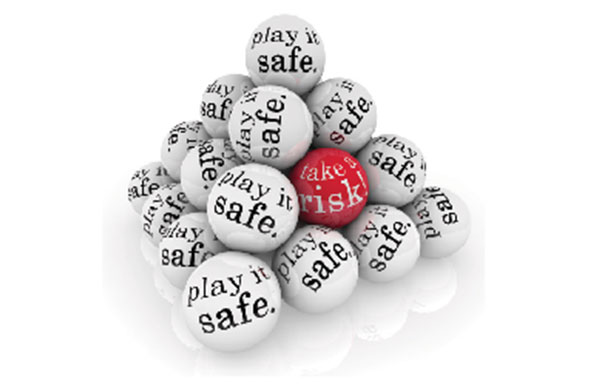 Some people are afraid of flying. Others are afraid of snakes. Now meet Sarah, a third grader in a local school. Sarah has a very uncommon fear. She’s afraid of recess.
Some people are afraid of flying. Others are afraid of snakes. Now meet Sarah, a third grader in a local school. Sarah has a very uncommon fear. She’s afraid of recess.
On the surface Sarah is a bright and intelligent young lady who gets good grades on her tests and excellent report cards. Inside, she’s miserable. That’s because she has a major problem dealing with social situations. She becomes awkward and shy whenever she has to interact with classmates or potential friends. So during school hours she can bury her head in her books and perform reasonably well. But during recess she is a social mess.
At recess, the other girls manage to join with their peers for a game of ball or jump rope. Some of them socialize easily over a snack. But somehow Sarah never developed the basic skills that would allow her to join any of these groups. She’s so scared of rejection that she avoids social contact with her fellow students at all costs. And while many of her classmates certainly wouldn’t mind if she joined their game, she will never know this. Not unless she learns to unlock her inhibitions and release her social fears.
There are lots of kids like Sarah in many schools across our area. Unlike the learning disabled children, they’re not always so easy to find. They don’t act out, they remain on the periphery, and they hardly ever complain. So they may seem to be doing well while inside they are falling apart.
Parents, of course, should not be fooled for a moment. They should recognize social problems as soon as they possibly can. If a child spends too much time alone in his room, if he avoids talking to his peers at all costs, if he withdraws when he is asked to respond to a stranger, if he speaks in a barely audible whisper, all of these are reasons to be concerned. And these are the times for a parent to look for help.
But be careful, and don’t make snap judgments. Just because your other children are social butterflies, doesn’t mean Jacob has to be the Mr. Personality of the class as well. Some people are naturally more reserved than others, and not every youngster is the bubbly effervescent Miss Personality-plus. If a child seems reasonably content relating to a small circle of friends, that’s okay. If he prefers to sit in the library rather than join the ball game, that’s okay too. It’s important to distinguish between a youngster who’s naturally reserved and one with a social skills problem. Discerning parents can usually tell the difference. If you’re not sure, consult a professional.
Do make that call. Because there’s no good reason for a child to suffer for years in silence. He or she can be helped to learn skills that will alleviate the problem. In my practice, I’ve been very successful in helping youngsters get through these challenging circumstances with some very effective role playing. We act out different situations and discuss the appropriate responses. I teach children to look at themselves from someone else’s point of view, and realize that they have plenty to offer to others. Most of all, I train them to build their self-confidence, which will inevitably lead to stronger social interaction.
So Sarah and I would discuss exactly what happens during recess. We would talk about the different ways she could mingle with others and make friends. Could she bring an interesting snack to school tomorrow and offer some to Sandy? Could she bring her own jump rope and ask others to join her game? We practice different scenarios, and I have Sarah repeat the things she will say over and over again. In short, I send her back to the schoolyard armed with an arsenal of possible responses to different situations that can elicit real change. Most of all, I explain to her that the world is not such a scary place after all.
Unfortunately, social issues can be related to other developmental issues. It’s not pleasant to think about, but the truth is that children who are unattractive or exhibit poor hygiene are more likely to be shunned. Obesity, dowdiness and general sloppiness can contribute to a child’s being rejected by his peers. If any of these factors play a role in your child’s social problem, then a parent, a teacher or a private educator should step in and correct the situation, even if it means shopping for a new wardrobe or going on a diet. Of course all people should be accepted for who they are, but children have to learn to conform to certain expectations in their environment if they want to succeed and develop healthy relationships.
Often, social problems are related to learning issues. Children who perform poorly in school or behave inappropriately are inevitably rejected by their peers and thus the downward spiral begins. Again, adults should step in and work on correcting the root cause of the issue. If learning problems are rectified, self -esteem increases, and social issues will work themselves out as well. It won’t happen quickly or easily, but a marked improvement will be noticed in time.
Parents can also be very helpful to socially challenged children. They can discuss the day’s events with their child, and gently point out where social interaction could be improved. “I’m a little surprised,” a mother might say, “that you didn’t ask your friend to come over on Shabbat.” Or, “Next time they choose sides for basketball, maybe you could ask the captain of the team to count you in.”
Encourage the child to develop a talent or hobby that will lead to increased interaction in a non-threatening venue. Music, dance or art lessons or swimming classes, sports activities or cooking courses may open up a whole new range of social possibilities. Especially if the child shows real talent and skill.
If your child is socially challenged, remember that her teacher is your partner. It would be wise to discuss this issue with her. School staff members can be quite sensitive to the needs of socially inept children, especially when they see them being bullied by their peers. A little guidance and supervision from a professional educator can go a long way in controlling the damage.
Most important of all, build up the self-esteem of the child. Rejection is a very difficult pill to swallow. After all, how often can someone be told that the seat in the lunchroom is “reserved” for someone else? How often can someone watch an energetic ball game and sit on the sidelines? The stress can be unbearable. It can affect someone for the rest of his life.
You can offset those negative feelings by offering encouragement. Praise socially inept children every time they get a good mark on a test. Encourage them to choose interesting books or activities. Spend some quality time together and really listen to what they have to say. Above all, explain to them that everyone is unique, we all have our strengths and weaknesses, and they can certainly grow and flourish in their own way. At the end of the day, all the kid wants to know is, “I’m perfectly normal. There are plenty of wonderful things about me.” It’s up to you to make that happen.
_____________
Mrs. Rifka Schonfeld founded and directs the widely acclaimed educational program, SOS, servicing all grade levels in secular as well as Hebrew studies. She is a highly regarded educator, having served the community for close to 30 years. She has extensive expertise in the field of social skills training and focuses on working with the whole child.



